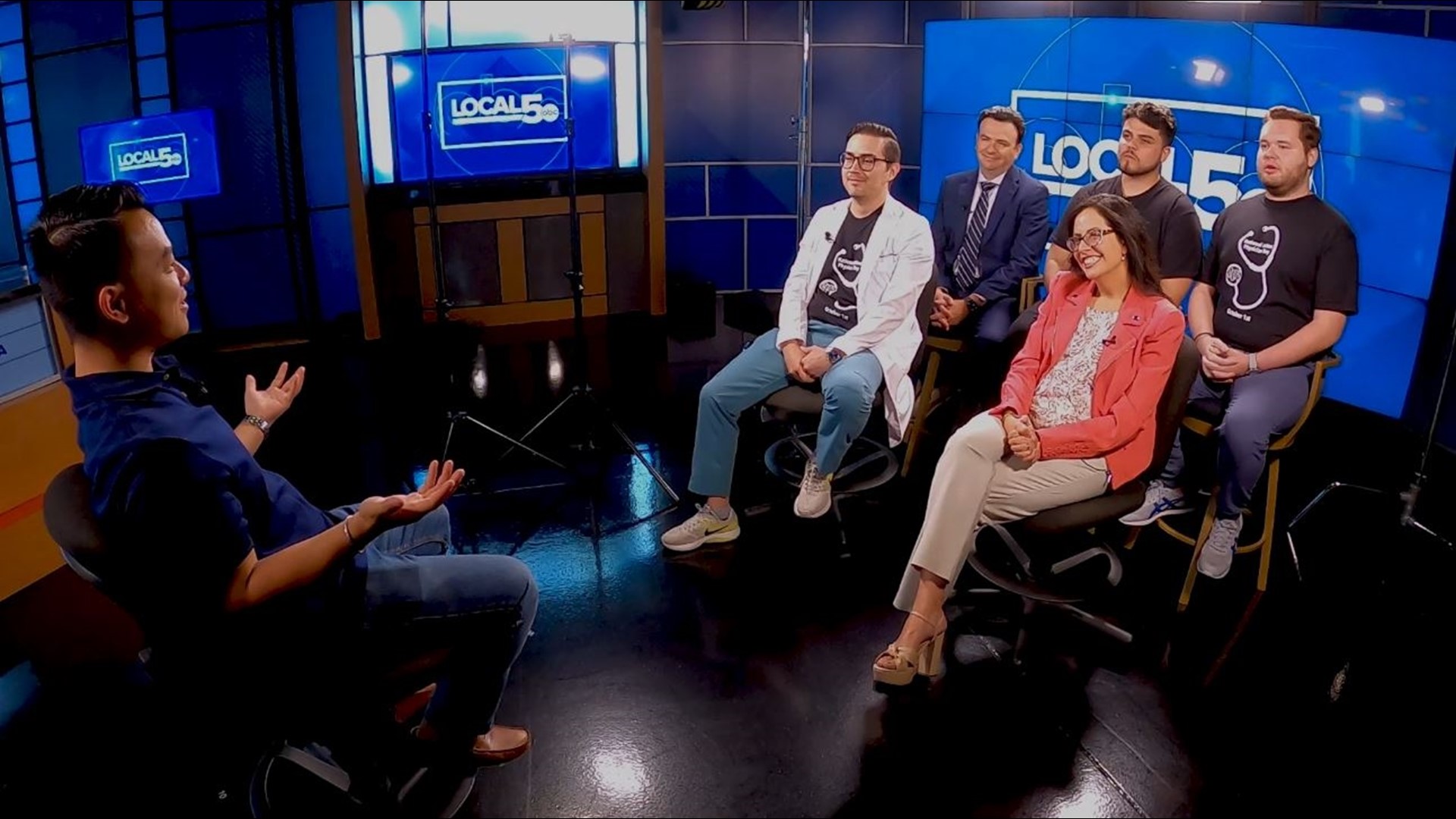DES MOINES, Iowa — According to the United States census, about 19% of the population is Hispanic or Latino.
In Iowa, it's about 7% of the state population.
But, if you look at Hispanic and Latino people in health care, physicians are far outnumbered by the population. That's why this weekend, a group of local doctors and medical students at Des Moines University are coming together to bring awareness and change.
Whether he's home in south Florida or in Des Moines, DMU medical student Ryan Mesa is very much himself: inquisitive, compassionate, and most of all, planted in his Latino roots.
“All of my grandparents are refugees from Cuba,” Mesa said.
The values his family instilled in him now pair perfectly with his undying drive to succeed.
“They were able to afford me the emotional support, the grit and the determination that really my family embodied from our journey from Cuba to the United States,” he said.
His family's story has ignited his passion. He's now the president of the DMU student club, Medical Students for Latino Health.
Dr. Richard Salas has worked at DMU for 12 years. Currently, he serves as the Chief Diversity Officer and also an assistant professor at DMU, someone who works closely with Latino and Hispanic students and champions a mission to get more into the medical field.
“Just the presence of having someone like Ryan out there, and the rest of our students, makes a big difference,” Salas said.
In partnership with MercyOne, Salas and Mesa are just a few of the Latinos in Iowa taking part in National Latino/Latina/Latinx Physician Day on Oct. 1 to address a shortage of Latino physicians in Iowa and the country.
“Let me put it this way: Latino health issues are everyone's health issues, same as Black, brown, Asian. You name the identity,” Salas explained.
Last year, the Association of American Medical Colleges released a report. The research showed in 2021, only roughly 6% of practicing physicians in the United States were Hispanic.
These Latino doctors from MercyOne Des Moines Medical Center and DMU students are working to improve that.
“Patients need to see somebody that understands their culture, can speak their language and that can have these relationship centered care, because there are so many nuances when a patient’s going through a process,” said Dr. Maria Guevara Hernandez with MercyOne Des Moines Medical Center.
Guevara Hernandez is also the program director of the internal medicine residency and assistant professor of internal medicine at DMU.
“It's really comfortable to see the patient's face when they are seeing someone that talks the same language and of course the way they interpret and the way we explain situations such as surgery, is very comfortable for them,” said Dr. Ulises Garza, a pediatric surgeon at MercyOne Des Moines Medical Center.
That compassion for these doctors is the key to success, pairing their life experiences with medicine.
“When they come to us and talk about the Vick's VapoRub or the chicken soup for the cold, you can understand them because you've lived that through your grandma and your family and you can also explain to them why that is good and what else can you do about what's going on with them to get the best health care possible,” said Dr. Josè Córdoba, a primary care physician.
The first-hand experience is something Guevara Hernandez lives everyday.
The National Institutes of Health reports that Hispanic and Latina women barely account for 2.5% of physicians nationwide. She wants young Iowans to see others like her and know it's possible to raise that number.
“'Hey! Maybe I can do it too' so that's what we want. It's not impossible. It's not easy. But it's doable,” Guevara Hernandez said.
Their work has inspired students like Arthur Santos from Brazil and Marcos Gonzalez from Puerto Rico to connect people and doctors.
“That's what we also want to champion, is the importance of understanding each other's stories," Santos said. "That's what makes patients trust you. That's what makes a community and society trust you to come back and get the best health care possible."
“It's really about teamwork," Gonzalez said. "People who see this happening and want to become future doctors as Latinos. Be brave. Be part of that team from the other side as a physician. That's why I got into this."
Being brave and leading the next generation to help people even if the path isn't easy is why for Mesa, representation is important and he wants to see more like him in health care.
“When, not if, but when you get criticized, remember the good in you," Mesa said. "Remember your great qualities. Remember you're worthy. Remember you're capable of doing great things. Don't fear this criticism but know when it comes, it's the results of your success and not your failures."
All of these doctors and students said mentorship is a huge component of success so they want any young Latino and Hispanic people going into medical school or dreaming of it to reach out to them and stay connected.
These MercyOne doctors and Des Moines University students, along with Dr. Salas, are all taking part in a National Latino/Latina/Latinx Physician Day event at El Fogon in West Des Moines-West Glen Sunday, Oct. 1 from 5 p.m. to 8 p.m.
You can RSVP for the free event here.

